SPECIAL REPORT
Two New Massachusetts Housing Reports and Recommendations. One speaks to the Cape's specific housing needs and challenges. The other calls for calls for statewide solutions including on zoning, parking, funding, and wastewater, among other items.
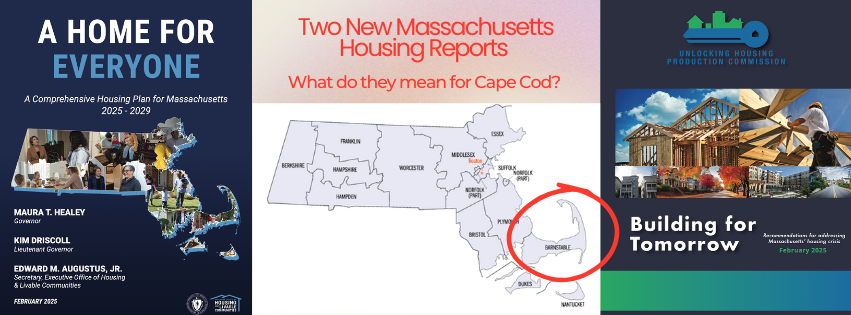
Two New Massachusetts Housing Reports and Recommendations
Massachusetts issued two major housing reports in February, 2025:
- "A Home for Everyone. A Comprehensive Housing Plan for Massachusetts 2025 - 2029" issued by the Governor speaks to the Cape's specific housing needs and challenges.
- "Building for Tomorrow" issued to the Governor by the Massachusetts' Unlocking Housing Production Commission calls for statewide solutions including on zoning, parking, funding, and wastewater, among other items. This report does not speak to the Cape's specific housing needs and challenges the Home for Everyone report.
Let's look at both, with the help of AI to sort through the ~150 pages.
"A Home for Everyone. A Comprehensive Housing Plan for Massachusetts 2025 - 2029"
In February 2025, the Governor, Lieutenant Governor and the Secretary of the Executive Office of Housing and Livable Communities issued a plan called "A Home for Everyone. A Comprehensive Housing Plan for Massachusetts 2025 - 2029."
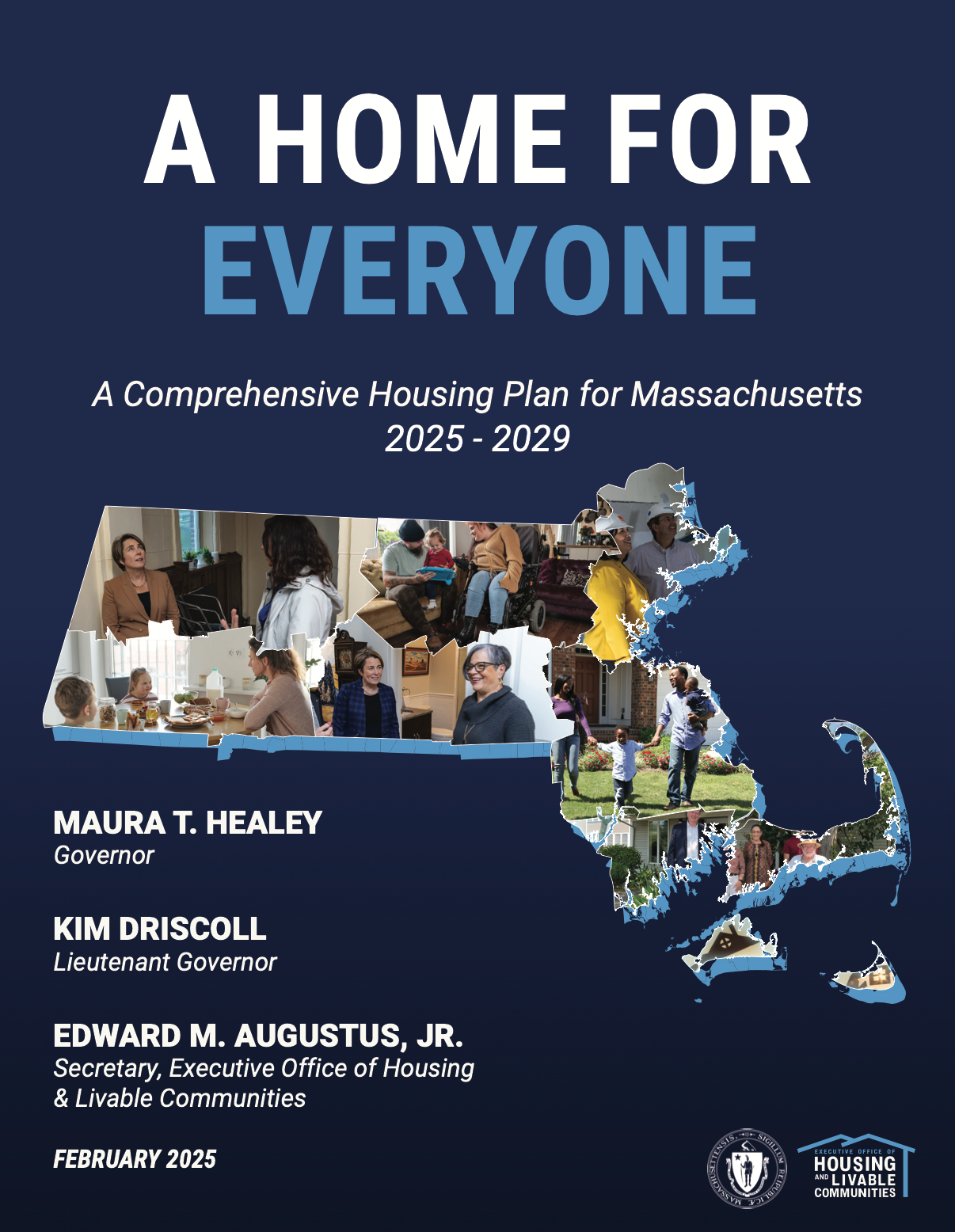
The Plan's purpose
"The plan outlines the housing challenges facing Massachusetts; identifies currently unmet and projected housing needs; sets goals for housing production and preservation; and presents new, renewed, and ongoing strategies to reach our goals at the state, regional, and local levels. This document published in February 2025 provides a high-level overview of the findings, forecasts, and strategies developed by EOHLC and its partners." page 3
Overview
In general, the "A Home for Everyone" report outlines Massachusetts' strategy to address housing instability and homelessness. The plan identifies key contributing factors like insufficient housing production, high housing costs, and systemic inequities. It proposes solutions across multiple sectors, including increasing affordable housing development, providing rental assistance, and supporting individuals experiencing homelessness with services like shelter and case management. Collaboration between state agencies, local communities, and non-profit organizations is central to the plan's implementation, aiming to create a comprehensive and coordinated response to housing needs across the Commonwealth.
Housing Target
This plan sets a target of adding 222,000 homes to the available housing stock over ten years, including homes of all types, sizes, and affordability, in all regions of the Commonwealth.
Cape Cod Specifics
The "A Home for Everyone" report examined Cape Cod needs specifically and reported that:
"Cape Cod, the Islands, and Western Massachusetts lost an estimated 9,000 year-round homes to seasonal conversion from 2010 to 2020." page 16
The Plan identified the Cape as needing less than 2.5% additional year-round housing units between 2025-2035.
This is a contrast to housing needs elsewhere in Massachusetts that need up to 10% more housing units in the same period.
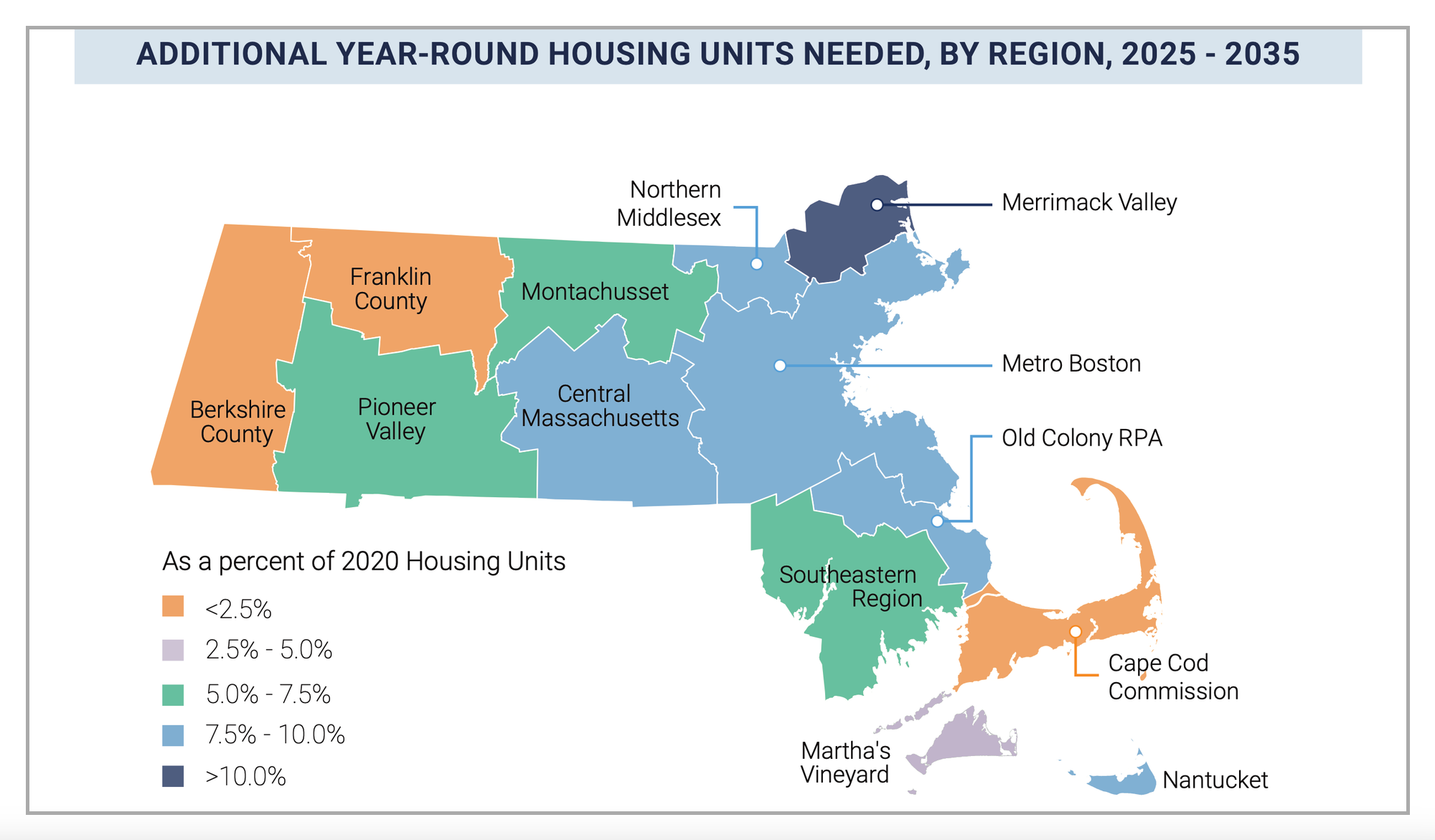
The Plan noted the impact of seasonal homes and short-term rentals on housing availability and price, particularly on the Cape and Islands, and in the Berkshires:
"An estimate 9,000 homes were converted to seasonal homes or short-term rentals between 2010 and 2020 and are no longer available to year-round residents in those communities. The availability of modestly priced homes and apartments is dwindling as they are acquired and upscaled by investors who sell or rent at a much higher price point." page 22
"With online platforms for short-term rentals, owners of homes in seasonal communities who may have previously made unoccupied units available for year-round rentals now prioritize short-term higher-revenue vacation stays." page 6
"Statewide, 3.6% of homes are used as seasonal residences or for short-term rental. On Cape Cod, that figure is 36%; in the Berkshires, 13%; on Nantucket and Martha’s Vineyard, 60%. This means that a substantial share of the housing stock in these regions isn’t available to year- round residents at any income." page 12
"Preserving these homes from conversion or producing enough homes to compensate for their loss is essential to ensuring adequate supply in those regions." page 40
And now, the other.
"Building for Tomorrow" by the Massachusetts' Unlocking Housing Production Commission
In February 2025, the state's "Unlocking Housing Production Commission" issued a report and recommendations to the Governor on how state and local laws and practices could be changed to increase housing supply. The charge is in italics in the second image below.
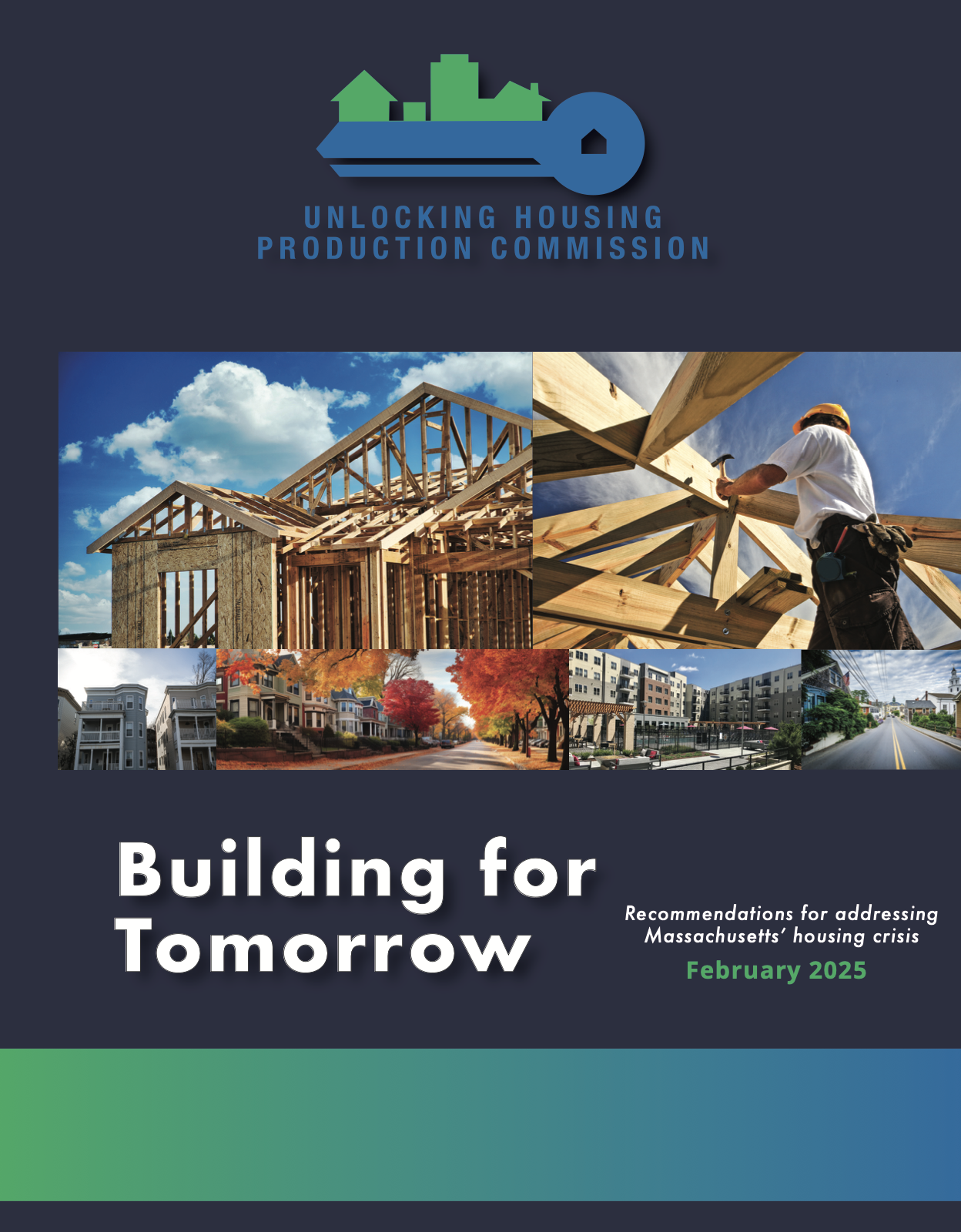
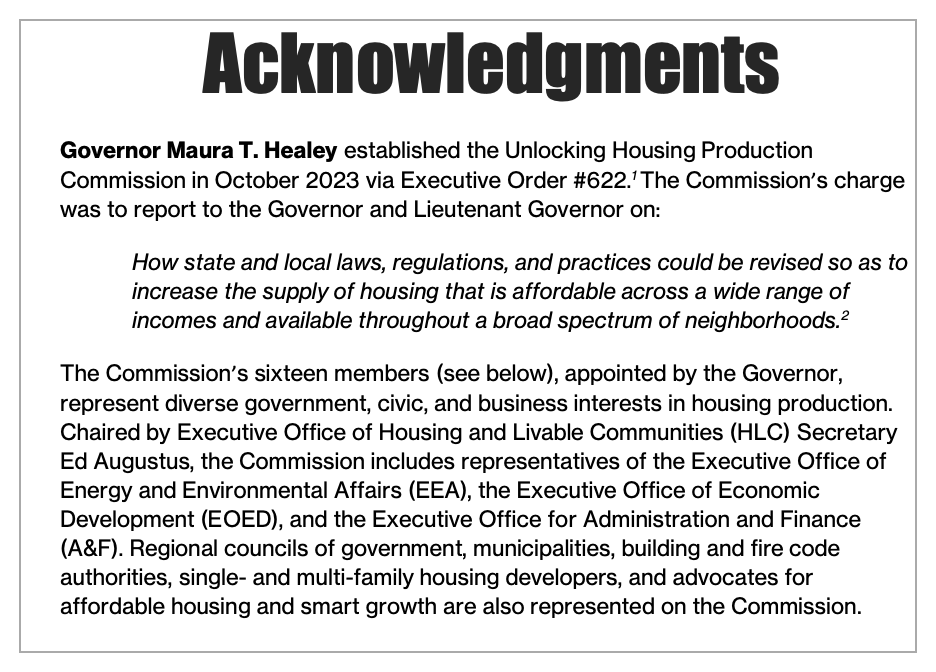
Overview
The "Building for Tomorrow" report identifies a significant housing shortage across the state, impacting residents of all income levels and hindering economic growth. The report highlights how restrictive zoning practices, lengthy permitting processes, and limited infrastructure investment contribute to this shortage. The report says that "at the core of this effort is the recognition that Massachusetts has a 222,000-unit housing deficit—a shortfall that must be addressed to bolster economic stability, improve affordability, and meet the needs of future generations." page 6.
Implementation of the "Building for Tomorrow" Report
The report notes which of its recommendations would be implemented through executive, regulatory or legislative action.
Last week, Town Manager Ells reported at an Affordable Housing Trust Fund Board meeting that Cape Cod Senator Julian Cyr would chair the Housing Committee at the State House.
Some recommendations that illustrate the Building for Tomorrow report's direction are as follows:
“The Commonwealth should allow two-family homes on all residential lots and four-family homes on all residential lots where there is existing water and sewer infrastructure.” ....“This recommendation does not mandate multifamily construction but removes unnecessary zoning barriers, ensuring that two-, three-, and four-unit dwellings can be built without requiring variances or discretionary review.” page 39
“The Commonwealth should eliminate minimum residential lot sizes statewide except in environmentally sensitive areas and on excluded lands.” page 42
“The Commonwealth should eliminate parking minimums statewide for any residential use” page 32
"The Commonwealth should align all municipal funding with housing production and smart growth goals" page 80.
"The Commonwealth should ensure that the allocation process for all critical municipal transportation and education funding sources, not just discretionary sources, aligns with the Commonwealth’s goals of enhanced housing production, housing preservation, and smart growth. This alignment will proportionately reward communities (even those experiencing low or no growth) for their ability to produce and preserve housing and champion smart growth. By tying significant portions of municipal funding to housing best practices, communities will have stronger incentives to adopt pro-housing initiatives." page 80
"The Commonwealth should establish an Office of State Planning to support the pursuit of smart, sustainable housing development, by aligning statewide land use and development planning, promoting interagency collaboration, and compiling and sharing essential data to better support municipal actions and inform the development of accountability metrics." page 72
"Potential Future Strategies": "The Commonwealth should allow larger housing developments to transfer approval authorities from local boards to Regional Planning Agencies (RPAs) via local option.
Currently, large housing developments (e.g., 25+ units) must navigate a complex, often unpredictable local approval process, which can vary widely across municipalities and create significant delays. Local boards also frequently reject or significantly reduce the scale of projects, even when they align with regional and state housing priorities. Transferring approval authority for larger housing developments from local boards to Regional Planning Agencies (RPAs) would streamline approvals, create greater consistency across municipal boundaries, and prioritize housing production at a regional scale." page 85
No Cape-specific Information or Perspective
The Building for Tomorrow report does not address the Cape's unique housing needs (less than 2.5% additional year-round units over the next decade) and challenges (impact of seasonal home and short-term rentals) explained in the A Home for Everyone report.
Further, the Building for Tomorrow report's call for statewide change does not account for the Seasonal Communities designation that the state will apply automatically to:
*All municipalities in the counties of Dukes and Nantucket
*All municipalities with over 35% seasonal housing units in Barnstable county
*All municipalities with more than 40% seasonal housing units in Berkshire county.
This designation its said to be designed for communities with high rates of short-term rentals in relation to the overall housing inventory and significant population increases in seasonal visitors. It is explained as providing "tools" such as, but not limited to:
* Acquire year-round housing occupancy restrictions
* Develop housing with a preference for municipal workers
* Establish a Year-Round Housing Trust Fund
* Create year-round housing for artists
* Allow tiny homes to be built by-right and used as year-round housing
The following is an AI-generated summary of the Building for Tomorrow report's recommendations on Zoning, Parking and Wastewater, together with quotes on each. AI makes mistakes; consult the report for details.
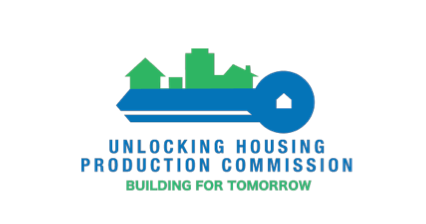
ZONING SUMMARY
• The Commission concludes that restrictive zoning is a major obstacle to housing production in Massachusetts, particularly for multi-family housing. Many municipalities have zoning bylaws that favor single-family homes on large lots, limiting the development of diverse housing types.
• The report recommends significant zoning reform to allow for greater density and a wider range of housing options. This includes promoting "as-of-right" multi-family development in areas with access to transit and infrastructure.
• Specifically, the Commission suggests relaxing or eliminating restrictions on lot sizes, setbacks, and building heights for multi-family developments, including four-family structures. This would facilitate the construction of more affordable and diverse housing options.
• The report highlights the need to address local opposition to multi-family housing by emphasizing the benefits of increased density, such as improved affordability, reduced transportation costs, and greater economic vitality.
• The Commission recommends providing technical assistance and incentives to municipalities to encourage zoning reforms that support multi-family housing development, including four-family dwellings, and a shift away from predominantly single-family zoning. This could include grants, streamlined permitting processes, and model zoning bylaws.
• The report concludes that zoning reform is crucial for addressing the housing crisis and promoting sustainable growth in Massachusetts. By allowing for more diverse housing options, including multi-family and four-family units, the state can create more vibrant and inclusive communities.
ZONING QUOTES
"Zoning regulations in Massachusetts often favor single-family homes, limiting the construction of much-needed multi-family housing."
"The Commission recommends allowing multi-family housing by right in all communities, as a key strategy to increase housing production."
"By-right zoning for four-family homes, particularly near transit hubs, can create more diverse and affordable housing options."
"The report recommends streamlining the permitting process for multi-family developments to incentivize construction."
"Outdated zoning regulations that prioritize single-family homes contribute to housing scarcity and affordability challenges."
PARKING SUMMARY
• The Commission recommends eliminating parking minimums statewide.
• Municipalities should be allowed to implement parking maximums.
• The Commission suggests reducing or eliminating parking requirements near transit.
• Shared parking is encouraged, and incentives for using shared parking facilities should be explored.
PARKING QUOTES
"Eliminating or substantially reducing parking minimums, especially near transit, can significantly lower development costs and encourage the construction of more affordable and transit-oriented housing."
"Municipalities should consider implementing parking maximums, rather than minimums, in certain areas to prevent overbuilding of parking and encourage other modes of transportation."
"Excessive parking requirements contribute to urban sprawl, increased traffic congestion, and higher greenhouse gas emissions."
"Shared parking arrangements and innovative parking management strategies can reduce the need for excessive parking while still meeting the needs of residents and businesses."
WASTEWATER SUMMARY
• The Commission concludes that extending municipal sewer and water service is crucial for increasing housing production, especially multi-family developments, and recommends streamlining the approval process for new wastewater infrastructure projects.
• The report highlights the need for increased multi-family housing near transit stations and recommends reducing parking requirements for these developments, particularly where wastewater capacity is limited.
• The Commission suggests exploring innovative wastewater treatment technologies, such as decentralized systems, to facilitate multi-family housing development in areas with constrained infrastructure.
• The report concludes that regulatory barriers related to wastewater and other utilities often hinder the development of multi-family housing and recommends reforms to expedite the permitting process. The report recommends changing the formula for calculating the amount of wastewater expected from large multifamily developments based on current flow rates from multifamily buildings.
WASTEWATER QUOTES
"The lack of adequate wastewater infrastructure is a significant barrier to housing production in many communities."
"Innovative wastewater technologies, such as decentralized systems, can help address capacity constraints and facilitate new development."
"Streamlining the permitting process for wastewater infrastructure projects is crucial to accelerating housing development."
"Investing in wastewater infrastructure upgrades and expansions is essential to meeting the growing demand for housing."
"DEP should examine potential enhancements to statewide wetland and wastewater standards as well as differentiated standards to address specific environmentally sensitive ecosystems and water supplies (e.g., groundwater on Cape Cod)." page 51 "To ensure that DEP standards appropriately protect public health and the environment and recognize differences in the environmental sensitivity of certain ecosystems and water supplies, DEP should rely on rigorous assessments to determine indicators of environmental sensitivity, and to establish potentially stricter standards, especially for areas of higher sensitivity (e.g., nitrogen, phosphorous, and other concerns near estuaries and embayments on Cape Cod and vicinity)." page 51
